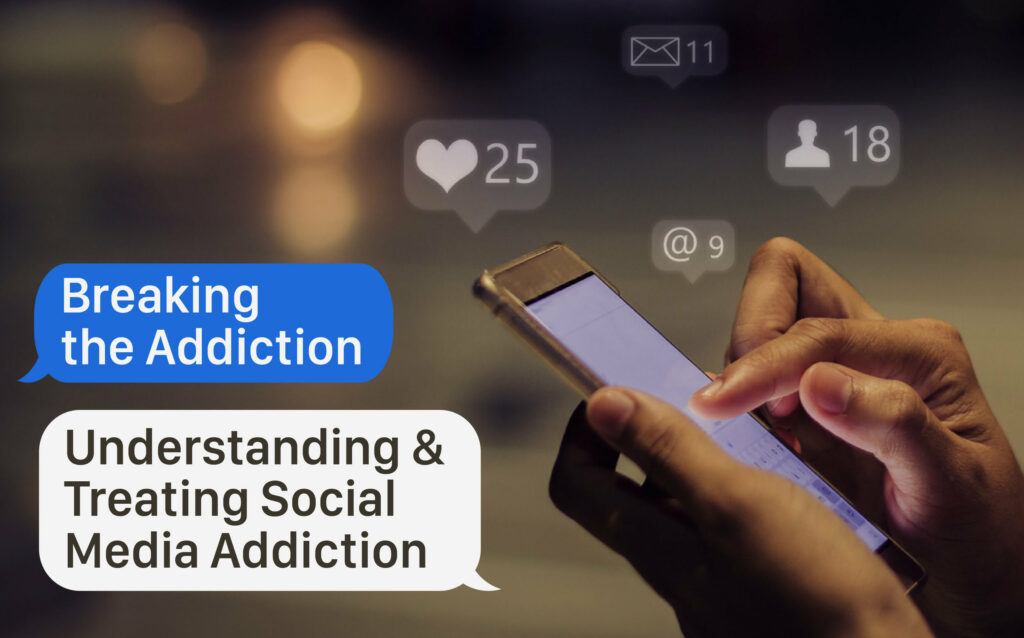
You open your phone to check one notification, and suddenly an hour has passed. The endless scrolling, the likes, the comments, and the constant urge to check what others are doing—these are signs of how deeply social media can affect our minds. While social platforms were designed to connect people, they have also created an environment where attention, validation, and comparison can become addictive.
At Killacodes, we understand that addiction takes many forms, not just substance-related ones. Behavioral addictions, including social media dependency, can deeply impact mental health, relationships, and recovery progress. Understanding why social media feels so hard to put down is the first step toward taking back control.
The Psychology Behind Social Media Addiction
Social media addiction doesn’t happen overnight. It builds through powerful psychological mechanisms that reward certain behaviors. Every time you receive a like, comment, or share, your brain releases dopamine—the same neurotransmitter linked to pleasure and reward. Over time, this reinforces the behavior, making it more difficult to disconnect.
Social media also thrives on unpredictability. You never know what you’ll see when you refresh your feed. That uncertainty keeps the brain craving more, similar to how gambling works. For individuals already in recovery or struggling with anxiety, this constant stimulation can lead to heightened stress and distraction from real-world healing.
How Social Media Affects Mental Health
While social media can be used positively, overuse is linked to depression, anxiety, and loneliness. The constant exposure to curated perfection makes it easy to fall into comparison traps. You may start to feel that everyone else’s life is more exciting or fulfilling than yours.
For people in addiction recovery, these feelings can trigger relapse behaviors or emotional withdrawal. The pressure to appear “okay” online can also conflict with the vulnerability and honesty needed for true healing. At Killacodes, we encourage clients to explore these emotional triggers as part of their holistic recovery journey.
Common Signs of Social Media Addiction
- Feeling anxious or restless when unable to check your phone
- Losing track of time while scrolling
- Comparing your life to others constantly
- Neglecting responsibilities or personal relationships
- Using social media to escape emotional discomfort
Recognizing these patterns can help you identify when digital behavior is crossing into unhealthy territory.
Breaking Free: Practical Steps Toward Balance
1. Set Healthy Boundaries
Designate specific times for social media use and stick to them. Removing apps from your home screen or setting screen time limits can help reduce impulsive checking.
2. Reconnect with the Present
Mindfulness practices such as meditation, prayer, or deep breathing can help you stay grounded in the moment instead of seeking stimulation from your phone.
3. Replace Digital Habits with Meaningful Activities
Find offline activities that fulfill you emotionally and spiritually. Reading, exercising, journaling, or spending time in nature can help rewire your brain toward healthier rewards.
4. Seek Support When Needed
If you find it difficult to control your use, you are not alone. Social media addiction can be addressed through professional guidance. At Killacodes, our faith-based and individualized treatment programs integrate mental health care, counseling, and holistic therapies to help individuals rediscover balance and inner peace.
Healing Beyond the Screen
Recovery, whether from substance use or behavioral addiction, is about more than abstaining—it’s about rebuilding connection, self-awareness, and purpose. Social media can easily distract from that process, but it can also be used intentionally for positive growth. The key is to engage with it mindfully rather than compulsively.
Taking the First Step Toward Digital Wellness
Breaking the scroll begins with awareness. You have the power to reclaim your focus, your time, and your peace of mind. Whether you’re navigating recovery or simply trying to find healthier habits, taking control of your digital life is a meaningful step toward overall wellness.
If you are struggling to manage your social media use or feel overwhelmed by its emotional impact, reach out to Killacodes today. Our compassionate team provides personalized addiction recovery and mental health treatment designed to help you find balance in every part of your life—online and offline.
You deserve more than the endless scroll. Let’s begin your journey toward clarity and connection together.
